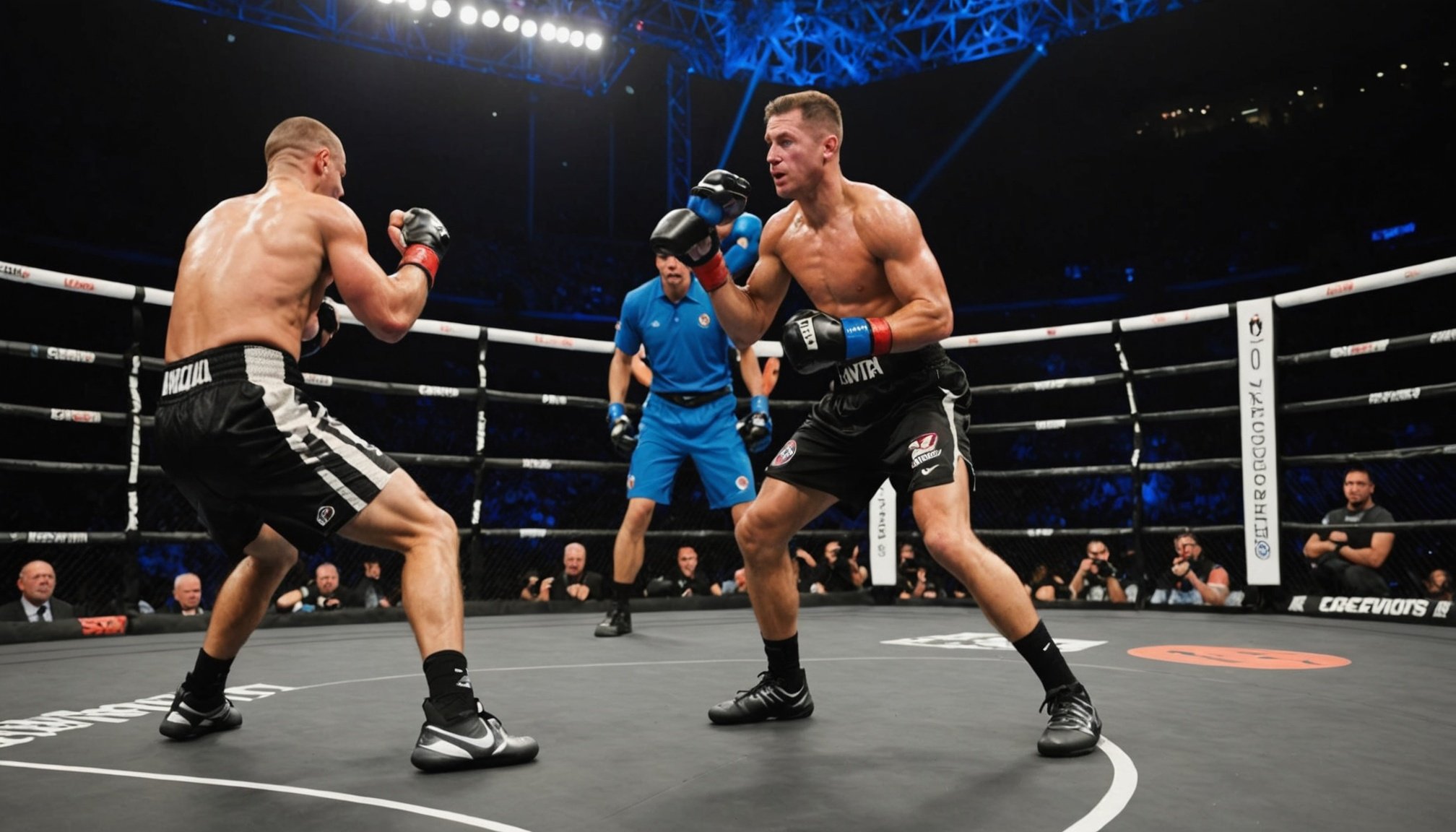In the high-stakes world of combat sports, resilience stands as a cornerstone of an athlete’s journey. The quest for success in this arena is punctuated by both spectacular victories and daunting setbacks. Yet, what differentiates the legends from the fleeting stars is their ability to harness the power of adversity to build mental fortitude. As we explore the strategies and insights into developing resilience in combat sports, we aim to equip you with knowledge to thrive in the face of challenges, enhance your performance, and maintain robust mental health.
Understanding Resilience in Combat Sports
Resilience is more than just a buzzword in the realm of sports psychology. It is a fundamental quality that enables athletes to navigate the turbulent waters of competition and personal development. In combat sports, resilience holds a unique position as athletes face not only physical challenges but also psychological battles.
Additional reading : How does understanding your opponent’s fighting style contribute to a fighter’s strategy?
Picture an athlete at the height of their career, facing a formidable opponent. The pressure to perform is palpable, and the risk of failure looms large. In such critical moments, it is resilience that empowers them to rise above adversity, maintaining focus, and striving for greatness despite setbacks.
Researchers Fletcher and Sarkar have extensively studied resilience, highlighting its critical role in sport. Their findings suggest that resilient athletes possess a psychological toughness that helps them adapt, recover, and grow stronger from adversity. This inner strength is not an inherent trait but a skill developed through consistent effort and strategic training.
Have you seen this : How can combat athletes use technology to analyze and improve their performance?
Building resilience starts with understanding one’s mental landscape. Athletes must cultivate self-awareness, recognizing their strengths, weaknesses, and emotional triggers. This insight serves as a foundation for developing coping mechanisms tailored to individual needs. Moreover, emphasizing a positive mindset, embracing challenges as opportunities for growth, and fostering self-belief contribute significantly to building resilience.
Training the Mind: Psychological Tools for Resilience
In combat sports, where physical prowess meets mental agility, training the mind is as critical as conditioning the body. Psychological resilience can be honed through various techniques that bolster mental endurance and prepare athletes for the rigors of competition.
One effective strategy is visualization. By envisaging success, athletes can create a mental blueprint of their desired performance. This powerful tool aids in reducing anxiety and enhancing self-confidence. It allows athletes to rehearse scenarios, preparing them thoroughly for different outcomes, which in turn fosters resilience when facing unexpected challenges.
Mindfulness practices also play an integral role in developing resilience. Techniques such as meditation and controlled breathing help athletes remain present, manage stress, and maintain focus during high-pressure situations. This ability to stay composed under pressure is invaluable in combat sports, where a split-second decision can significantly alter the course of a match.
Support systems, including coaches, mentors, and peers, provide essential psychological support, motivating athletes to persevere and offering a safe space for emotional expression and reflection. These relationships contribute to a resilient mindset by reinforcing the belief that adversity is a shared experience and not a solitary burden.
Finally, self-compassion cannot be overlooked. Athletes often face harsh self-criticism, but learning to treat oneself with kindness and understanding during tough times can enhance resilience, helping athletes bounce back with renewed vigor.
Physical Training: Building Resilience Through Sport
While mental strategies lay the groundwork for resilience, physical training in combat sports serves as the crucible where mental toughness is forged. The rigorous demands of combat sports require athletes to push beyond their limits, fostering resilience through disciplined practice and perseverance.
Endurance training is a key component in building resilience. By continuously challenging their physical limits, athletes develop the stamina necessary to withstand the intense physical demands of combat sports. This physical resilience translates into mental toughness, as athletes learn to push through fatigue and discomfort.
Combat sports also emphasize adaptability. The dynamic nature of these sports means athletes must be able to pivot strategies quickly in response to their opponent’s actions. This adaptability is a hallmark of resilience, as it requires quick thinking, strategic planning, and emotional control.
Moreover, incorporating recovery as a central aspect of training is crucial. It is during recovery that the body repairs and strengthens, both physically and mentally. Athletes must respect the recovery process, understanding that resilience is not just about pushing harder but also about knowing when to rest and rejuvenate.
Cross-training and variety in workouts can prevent burnout and keep athletes mentally engaged. This approach not only improves physical resilience but also stimulates psychological growth, as athletes are regularly exposed to new challenges and learning opportunities.
Leveraging Adversity for Growth
Adversity is an inevitable part of the journey in combat sports. How athletes respond to it often defines their career trajectory. Learning to view challenges as opportunities for growth is a crucial step in leveraging adversity to build resilience.
Every setback holds a lesson. Athletes are encouraged to reflect on their losses, analyzing what went wrong and identifying areas for improvement. This reflection transforms setbacks into stepping stones, providing valuable insights for future success.
Incorporating resilience training into a comprehensive support system can help athletes recover from setbacks. Coaches play an integral role in this process, offering guidance and encouragement while ensuring athletes remain focused on their goals. By framing failure as a temporary setback rather than a defining moment, athletes can maintain a positive outlook and continue progressing.
Additionally, mentorship programs can provide athletes with access to seasoned professionals who have navigated similar challenges. These mentors offer perspective, sharing personal experiences and strategies for overcoming adversity, further strengthening the athlete’s resolve.
Finally, fostering a resilient community among athletes can create an environment of mutual support. By celebrating each other’s successes and rallying together in times of failure, athletes can collectively build resilience, encouraging a culture that views adversity as a collective challenge rather than an individual impediment.
In the demanding world of combat sports, resilience is not merely a desirable quality; it is a necessity. Through a combination of mental and physical training, supported by strategic insights and community backing, athletes can cultivate a resilient mindset capable of turning adversity into opportunity. As you navigate your journey in combat sports, remember that resilience is a skill that can be developed and strengthened over time. By embracing challenges, learning from setbacks, and continuously striving for improvement, you can build the mental fortitude necessary to excel in the face of any obstacle.











